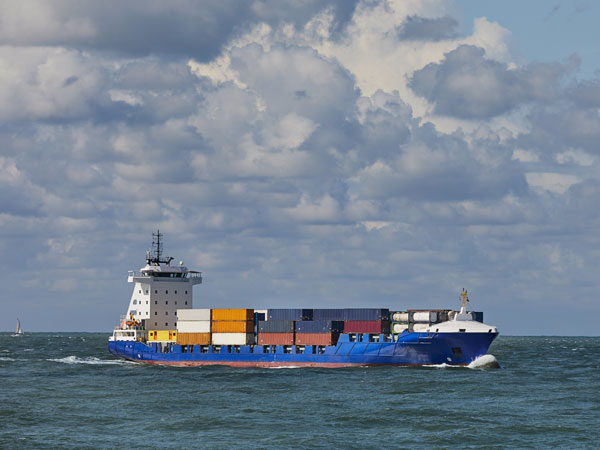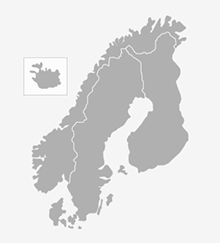The National Institute for Economic Research has given VTI the assignment of estimating the impact of Fit for 55 (the EU’s climate policy package) on shipping. The project includes Senior Analyst Inge Vierth, Researcher Axel Merkel, Analyst Joar Lind and research assistants Karin Ek and Emma From.
The vast ‘Fit for 55’ package of proposals for climate legislation – both new and revised – is unique in its scope. The name refers to the EU’s climate target of reducing emissions by 55% by 2030. Policy instruments include extending emissions trading to shipping, while removing tax exemptions for marine fuel, introducing reduction obligations and expanding infrastructure. If the proposed policy instruments are introduced, they will increase maritime transport costs and provide incentives for shipowners and other stakeholders to adapt in various ways.

“Our assignment is to analyse how shipowners and, by extension, freight buyers are affected by the proposed climate-related policy instruments,” says Inge Vierth.
Maritime transport is lagging behind the other modes of transport in the implementation of such policy instruments. The purpose of the assignment is to estimate how maritime transport costs to and from Swedish ports will be affected by the proposed EU policy instruments. It also includes a description of how different segments are affected. The assignment is limited to freight transport; pure passenger and cruise ships are not included in the study.
Fit for 55 includes four principal policy instruments affecting maritime transport costs: i) The extension of the EU Emissions Trading System (ETS) to maritime transport, phased in between 2023 and 2026. ii) The amended Energy Taxation Directive, which will end the tax exemption for maritime fuel as of 2023. iii) The reduction obligation in the ‘FuelEU Maritime’ proposal, which implements a greenhouse-gas intensity standard for marine fuel, progressively stricter until 2050. iv) The requirements for infrastructure provision for alternative fuel/electricity bunkering. Quantitative analyses are carried out for the first two policy instruments and qualitative analyses for the latter two.
To estimate the effects of the expansion of the EU ETS to include shipping and the updated Energy Taxation Directive, traffic data are used for all commercial traffic to and from Swedish ports in a base year. The cost changes are estimated at ship level by combining data from three sources: data describing the movements of ships, data from a ship database and fuel consumption and CO2 emissions data from the EU MRV reporting system. The vessel-specific results are aggregated for different commodity groups, domestic or international traffic and for different vessel types.
In a next step, adjustments to the higher maritime transport costs are simulated in the Transport Administration’s Samgods model. Transport demand is assumed constant and the adjustments which can be made in the model include better use of vessel carrying capacity, switching to a different vessel type/size, switching ports and switching to other transport chains and modes.
“Naturally, every shipowner wants to keep costs down. An example of what we will analyse is the advantage yielded by switching to vessels of less than 5,000 gross tonnes, which under the current proposal will not be included in the EU ETS, or to larger vessels with lower costs per tonne-kilometre,” says Inge Vierth.
The report shall be submitted to the National Institute for Economic Research by 1 December 2022.
“It is very interesting and crucial to have knowledge regarding such a central issue of climate policy at EU level. It is important that Sweden is proactive and contributes impact assessments to discussions regarding policy instrument design,” concludes Inge Vierth.
Text: Tiina Mauritzell/VTI
Translated by: CBG Konsult & Information AB
Contact

Inge Vierth
inge.vierth@vti.se
VTI, Swedish National Road and Transport Research Institute
Sweden






Follow us: